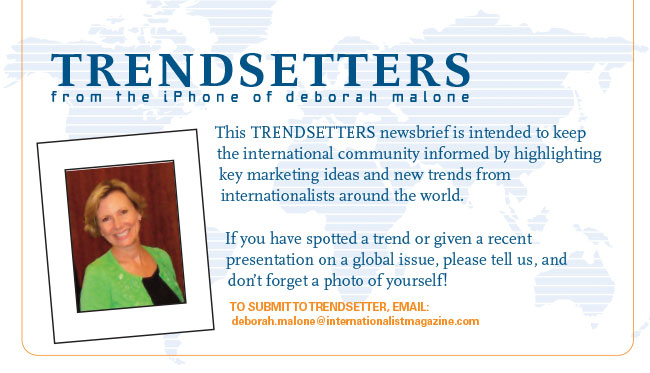


Carlos Brito

Jeb Bush

Gordon Brown
ABInBev’s Carlos Brito Discusses Leadership along with Political Giants Jeb Bush and Gordon Brown
New definitions of leadership were very much on the minds of decision makers as the World Business Forum opened earlier this week-- ironically, just as the US government shut down over a hostile budget stalemate. Increasingly, business leaders are standing shoulder-to-shoulder with public sector executives at a time when more governments are interested in lessons from successful corporations. Among the world’s 100 largest economic entities today, less than half are now governments, once the largest financial bodies. The majority are multinational corporations, which also have the distinct benefit of being transnational.
ABInBev’s CEO Carlos Brito certainly shepherds a sprawling global corporation, created by six mega-mergers over two decades. The 2008 merging of Anheuser-Busch with InBev created the world’s largest beer maker and transformed the industry. Today, AB InBev has integrated over 200 beer brands from around the world to impressive levels of profitability.
With these results, Carlos Brito talks often about the importance of sustaining a high performance culture. Corporate culture, for Brito, must transcend national culture, if a company is to achieve excellence. Brito himself is not only a true internationalist, but a new breed of global leader who effortlessly embodies multiple cultures, national identities and geographies. He is a Brazilian, based in New York, running a Belgian-headquartered company of 150,000 employees in 24 countries.
Brito is an advocate for dreaming big. He also believes that a successful company is comprised of great people who thrive in an atmosphere of openness and who are committed to the long term—an attitude he characterizes as an “owner, not renter” mentality.
A number of his ten principles for leadership were later echoed by two prominent public sector speakers at the World Business Forum--the former Florida Governor, Jeb Bush, and the former British Prime Minister, Gordon Brown. Brito’s advice includes:
- Dream big, but stay humble.
- A company has one culture. There are not separate rules for management. There are no walls.
- To be a high performance leader, you have to be concerned about the group. A team is an expression of the leader.
- Success is all about people and understanding the power of people.
- Face the brutal facts. Talk about the good, bad and ugly with the same clarity. Consumers judge brands everyday by buying what they like. Never forget we work for our consumers.
- Reward results, not efforts. Acknowledge efforts. Appreciate them. But results matter. Consumers buy results.
- Performance works best under the right amount of pressure—enough to encourage people out of their comfort zone, so they learn faster, perform better and produce more.
- Welcome healthy conflicts. With conflict comes better ideas and better outcomes. Business is not about pleasing everyone. Consensus is an impossible science. Alignment is better than consensus.
- The consumer is always the ultimate acid test.
- There are no shortcuts. An engaged group of employees who have an authentic experience of “ownership” will stay for the long term and get things right. He adds, “We don’t want people who are trying to find the shortcuts to achieving a two-year plan.
Jeb Bush also has a set of principles that guided him during his eight years as governor. He is credited with initiating improvements in Florida’s economy, environment, and health care, as well as reforming the education system.
He believes these ideals can be applied today to solve crises of political leadership, and like Carlos Brito’s ten guidelines, they sound deceptively simple. He advocates dogged determination and humility. Perhaps audacious for a politician, Bush also believes: “Tell people what you’ll do, then do it.” And like Brito’s concept of Dream Big, he agrees it takes the same amount of energy to set a big goal than a small one. In other words, big and bold do matter.
Bush adds that leadership, particularly in difficult times, is about challenging assumptions. He told the World Business Forum to dare to ask why not? “Reconfigure your thinking as if you were starting from scratch. Challenge the status quo.” He cited the inspiration of Elon Musk and his company SpaceX as it reinvents space technology within the private sector. In a reference to the US budget impasse over the Obama healthcare package, he suggested challenging the status quo might mean a 21st century healthcare solution with a greater focus on preventive care.
Gordon Brown is keenly aware of how captains of industry can steer companies in changing economic times. His tenure as Britain’s Chancellor of the Exchequer was marked by major reform in monetary policy. Even now in his role as United National Special Envoy for Global Education, Brown recognizes that we are in the midst of sweeping economic change as geographical balances shift and as consumer spending power is more disperse around the world.
Perhaps his most important message for business is that the world economy will double in size in the 15-20 years, and with it will come a doubling of opportunities. He added, “The countries and companies that succeed will be the most innovative.” For him, this means better educations systems throughout the world, but also the “entrepreneurial and creative spark.”
